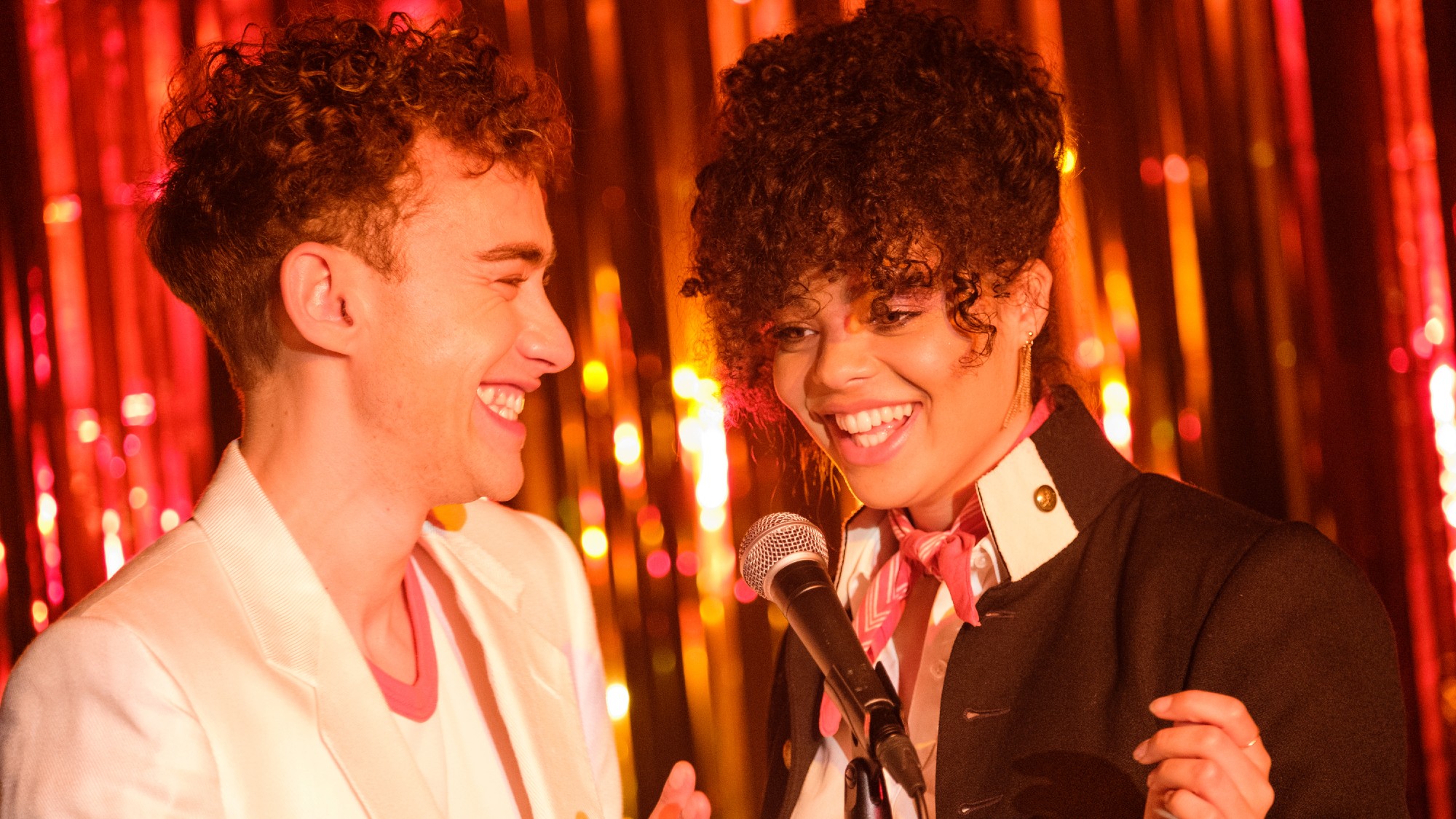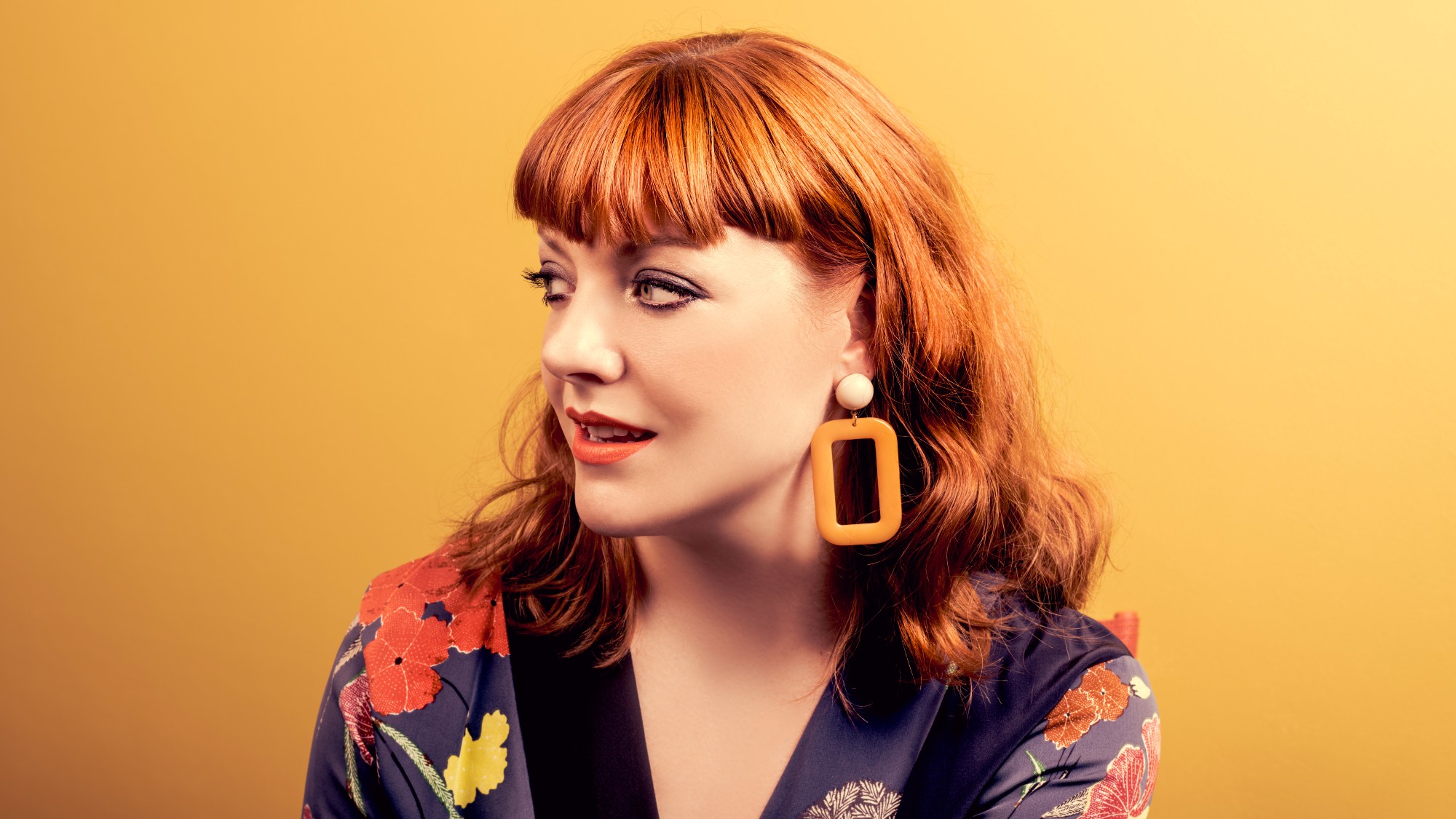Why It's a Sin is essential viewing this LGBTQ+ History Month
It's shocking, and it shouldn't be. But it's also one of the most life-affirming TV shows I've ever seen, In at the Deep End author Kate Davies writes of the Channel 4 drama paying homage to the forgotten voices of the AIDS crisis. As we celebrate LGBTQ+ History Month and National HIV testing week, here's why It's a Sin makes for essential viewing.

Celebrity news, beauty, fashion advice, and fascinating features, delivered straight to your inbox!
You are now subscribed
Your newsletter sign-up was successful
It's shocking, and it shouldn't be. But it's also one of the most life-affirming TV shows I've ever seen, In at the Deep End author Kate Davies writes of the Channel 4 drama paying homage to the forgotten voices of the AIDS crisis. As we celebrate LGBTQ+ History Month and National HIV testing week, here's why It's a Sin makes for essential viewing.
Last week, I spent every evening watching It's a Sin and crying into my sofa cushions for about an hour afterwards. You've probably seen it – 6.5 million people have so far, making it All4's biggest ever new drama launch and the most binged show in history. Written by Russell T. Davies (Queer as Folk, Years and Years, A Very English Scandal, Dr Who), the show tells the story of a group of friends in the 1980s who are devastated by the AIDS crisis. I've no idea how the binge-viewers managed it; I could only handle one episode at a time, and after all the sobbing, I had to take my mind off it by working on my 1000-piece puzzle of a Victorian Town House.
'It's one of the most life-affirming pieces of television I've ever seen'
But It's a Sin isn't dark – it's one of the most life-affirming pieces of television I've ever seen, a bittersweet roar of pleasure, pain and rage, set to a joyful Eighties soundtrack. The story focuses on Colin (Callum Scott Howells), a shy, innocent boy from the Welsh Valleys; Roscoe (Omari Douglas), camp and political, who has run away from his religious Nigerian family; loveable, fun-loving Ritchie (Olly Alexander), who explodes onto the London scene from the Isle of Wight, and Jill (Lydia West), his best friend, an actress and an ally.

They move in to a flat share together – the Pink Palace. They dress up in drag at house parties, have awkward one-night stands ('You need a good wash,' Ritchie is told, the first time he has sex), and snog strangers on the dance floor at legendary club Heaven. It made me ache for my friends and my twenties – you want to be one of them. But you know what's coming. You know, when Ritchie tosses a packet of condoms into the sea from the deck of the Isle of Wight ferry.
The series starts in 1981, just fourteen years after homosexuality was decriminalised in England and Wales, nine years after the first UK Pride event. Being out and proud and free is new and precious for these boys – and then they hear rumours of a new kind of cancer, a plague that only affects gay men. Half of them will be dead by the end of the series.
'It's a Sin is shocking, and it shouldn’t be'
The series particularly poignant because Davies has cast gay men in gay roles. If these actors were twenty years older, this could have been their story. After I left university, I moved to a flat share in London with my gay friends. It could have been our story, too. It's a Sin is so powerful, because the stories it tells are true. Some men dying of AIDS really were locked up, alone, in hospital rooms. Funeral homes really did refuse to bury the bodies of AIDS victims. It really was legal to refuse mortgages to queer people and fire someone for being gay. It was legal until 2003.

It's a Sin is shocking, and it shouldn’t be. Why aren't kids taught about the AIDS crisis in history lessons? Why is this the first time I've seen these stories on British TV? Because the shame, stigma and homophobia that the characters in It's a Sin face are still around today. One of my friends from university was diagnosed with HIV in our second year. He only told me years later, when we were about to move in together, because he knew I'd see his medication in the fridge.
Celebrity news, beauty, fashion advice, and fascinating features, delivered straight to your inbox!
'People dying on TV isn't a problem when they're dying in wars'
Russell T. Davies fought for five years to get It's a Sin made. He told the Pink Paper that a drama about the Aids crisis was considered a 'hard sell' – the series was turned down by Channel 4, the BBC and ITV (who told him 'we're not quite that sort of channel yet') before ending up back at Channel 4. TV bosses were nervous about the show, he said, 'because it's about people dying'. Shows about people dying aren't a problem for TV commissioners when those people are dying in wars, though, or at the hands of Scandinavian serial killers.

Shows like It's a Sin matter because television can change public opinion and start conversations more effectively than any government campaign. This week is HIV testing week, and thanks to It's a Sin, more people have ordered an HIV testing kit than ever before. On Tuesday, during a parliamentary debate, MP John Ashworth called for people with HIV to be prioritised for the Covid vaccine, explaining that many haven't disclosed their status to their GPs 'because of the stigma we saw portrayed in It's a Sin.' We need more shows like this, from people who have been marginalised by history, that crack open our hearts and change the way we see the world. But for now, watch this one. It's a masterpiece. You'll never forget it.
*Kate Davies's debut novel In at the Deep End is published by HarperCollins. You can stream all episodes of It's a Sin on All4 now.
The leading destination for fashion, beauty, shopping and finger-on-the-pulse views on the latest issues. Marie Claire's travel content helps you delight in discovering new destinations around the globe, offering a unique – and sometimes unchartered – travel experience. From new hotel openings to the destinations tipped to take over our travel calendars, this iconic name has it covered.